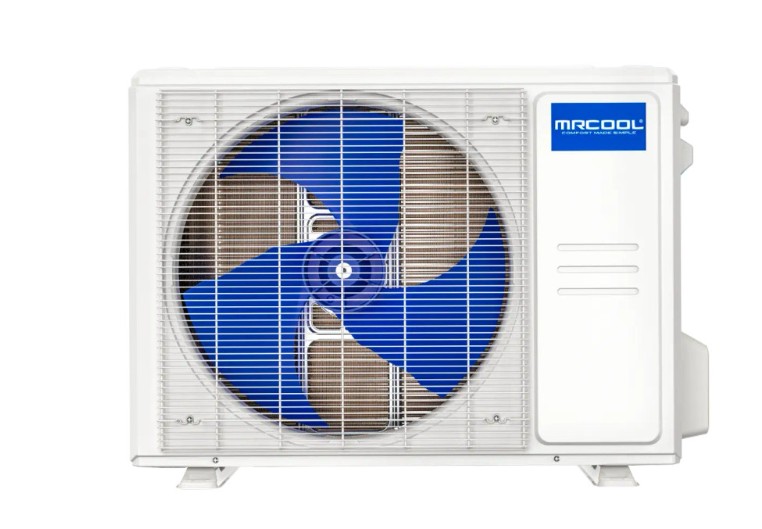A heat pump condenser is the unsung hero of your heating and cooling system. It works year-round to regulate your home’s temperature, and when it runs efficiently, you save money and stay comfortable. But without the right care, it can lead to higher bills and frustrating breakdowns.
In this guide, you’ll learn how the heat pump condenser works, why it’s important, and what you can do to keep it in peak condition. The goal is straightforward: improved performance, extended lifespan, and reduced energy costs.
What Is a Heat Pump Condenser?
The heat pump condenser is the outdoor unit in a heat pump system. It consists of several key components: a compressor, a fan, and a coil. This system doesn’t create heat from fuel like a furnace. Instead, it transfers heat between the indoors and outdoors using refrigerant.
In warm weather, it removes heat from your home and pushes it outside. In colder months, it extracts heat from the outdoor air even in chilly temperatures and brings it inside. This is why heat pumps are known for their efficiency.
Why the Condenser Matters So Much
Your heat pump condenser is responsible for:
- Managing heat transfer
- Controlling refrigerant pressure
- Supporting heating and cooling cycles
- Keeping your system energy-efficient
If it’s dirty, damaged, or blocked, your system has to work harder. That means more energy use and a shorter system lifespan.
Signs Your Condenser Needs Attention
Ignoring early signs of trouble can cost you. Keep an eye out for these common issues:
- Unusual noises from the outdoor unit
- Longer heating or cooling times
- Higher energy bills
- Ice buildup on the unit
- Weak airflow indoors
Catching these early can save you money on repairs or prevent total system failure.
Expert Tips to Keep Your Heat Pump Condenser Running Strong
1. Clean Around the Unit Regularly
Leaves, grass, and debris can block airflow. Keep at least two feet of space clear around the condenser. Trim shrubs and sweep away dirt and leaves weekly.
2. Check the Fins and Coils
Bent fins and dirty coils reduce efficiency. Use a fin comb to straighten them gently. Spray the coils with water and a coil cleaner every few months. Avoid pressure washers—they can damage the fins.
3. Replace or Clean Filters Monthly
Dirty filters force the system to work harder. Swap them out once a month or clean reusable ones as directed. This improves air quality and performance.
4. Schedule Professional Maintenance Twice a Year
Technicians can inspect refrigerant levels, test electrical components, and ensure everything is running smoothly. Regular checkups catch problems before they become expensive.
5. Listen for Strange Noises
Rattling, buzzing, or clanking sounds may indicate loose parts or wear and tear. Shut off the unit and call a pro if you notice anything out of the ordinary.
6. Avoid Covering the Unit Completely
In winter, people often cover outdoor units, but full covers can trap moisture and cause rust. Use a top cover only or a breathable mesh guard instead.
7. Install a Programmable Thermostat
This reduces unnecessary cycling. Set it to adjust based on your routine. Your condenser won’t have to work overtime, saving you energy.
8. Inspect the Wiring
Loose or damaged wires pose safety risks and may interrupt system function. Turn off the power to the unit and visually inspect the wiring. Call a technician if you spot any wear.
9. Use the Right Refrigerant
Older systems may use outdated refrigerants like R-22, which are being phased out. Upgrading or retrofitting to a newer model can reduce environmental impact and improve performance.
10. Watch for Ice in Winter
If the condenser is freezing up, the defrost cycle may not be working correctly. While some frost is normal, thick ice isn’t. Schedule service if it keeps happening.
Energy-Saving Tip: Keep It Shaded, But Not Blocked
A condenser in the shade runs more efficiently. You can install a pergola or plant trees nearby, but always allow room for airflow. Avoid placing anything directly on top or against the sides.
Don’t Skip These Mistakes to Avoid
- Never skip maintenance: It’s cheaper than emergency repairs.
- Don’t ignore airflow: A clogged unit can lead to compressor failure.
- Don’t block vents indoors: This affects overall circulation and reduces effectiveness.
- Avoid DIY refrigerant work: It’s dangerous and often illegal without proper certification.
Choosing the Right Heat Pump Condenser for Your Home
If you’re shopping for a new unit, focus on SEER (Seasonal Energy Efficiency Ratio) and HSPF (Heating Seasonal Performance Factor) ratings. The higher the ratings, the more efficient the system.
Also, check the noise level, warranty, and compatibility with your current air handler. It’s wise to consult an HVAC expert before making a purchase.
A Quick Word on Longevity
With proper care, a heat pump condenser can last 10 to 15 years. Regular tune-ups, cleanings, and smart usage go a long way in protecting your investment. Don’t wait for it to break before you give it attention.
Final Thoughts
A heat pump condenser is not just a piece of equipment—it’s the key to year-round comfort and energy savings. With just a little regular attention and care, you can avoid breakdowns, cut energy bills, and extend your system’s lifespan.
Want to get the most out of your heat pump condenser? Follow these practical tips today and keep your HVAC system efficient, reliable, and ready for every season.
Frequently Asked Questions
1. How often should I clean my heat pump condenser?
Clean the area around your condenser every month. Remove leaves, dirt, and debris. Deep clean the coils every 2–3 months for better airflow and efficiency.
2. Why is my condenser making unusual noises?
Unusual sounds like buzzing, rattling, or banging can mean loose parts, debris stuck in the fan, or a failing motor. Shut off the unit and call a technician right away.
3. Is it necessary to schedule professional maintenance?
Yes. A technician should inspect your system at least twice a year. Professional service keeps your unit efficient, extends its lifespan, and prevents major breakdowns.
4. Can I cover the condenser in winter?
Avoid fully covering it. Trapped moisture can lead to rust and internal damage. Use a breathable top cover or leave it uncovered if your unit is designed for outdoor exposure.





